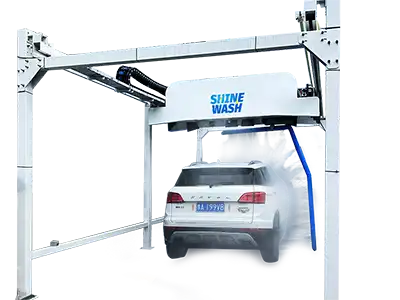
The Mexican car wash industry is thriving, fueled by a steady rise in vehicle ownership and the growing demand for faster, more efficient car cleaning solutions. For investors and entrepreneurs, automatic car wash machines are a smart move — offering higher profitability, reduced labor dependence, and consistent service quality. But before launching your car wash business, it’s essential to understand the market. This guide breaks down everything you need to know in 2025: the types of automatic car wash machines, their prices in Mexico, key cost factors, and how to achieve a solid return on investment. Types of Automatic Car Wash Machines in Mexico 1. Touchless Car Wash vs. Rollover Car Wash A. Touchless Car Wash Systems (High-Pressure Water & Chemicals) Touchless car wash machines rely on high-powered water jets and specialized detergents to clean vehicles without making any physical contact. This makes them an ideal option for luxury or high-end cars where paint protection is a concern. They are also suitable for older vehicles with sensitive exterior surfaces. While this contactless car wash system minimizes the risk of surface scratches, it does require more water and chemical usage than rollover car wash systems. Additionally, it may not be as...
View More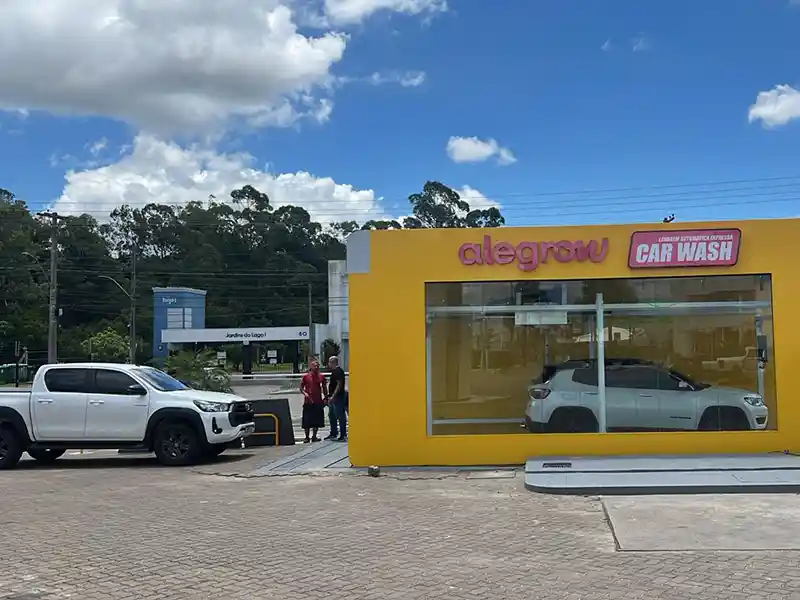
Keeping your car clean is essential for preserving its appearance, maintaining its value, and protecting it from dirt and environmental damage. When it comes to car washing, two options dominate the market—self service car washes and automatic car washes. But which one should you choose? In this guide, we compare the pros, cons, and key differences between self-service car wash and automatic car washes to help you decide which method fits your budget, lifestyle, and vehicle care needs. What is a Self Service Car Wash? A self-service car wash is a facility that lets you wash your vehicle using provided tools and equipment. These usually include high pressure hoses, foam brushes, and vacuums. You control each step of the process, from rinsing to soaping and drying. Pros of Self Service Car Washes Customized Cleaning You can focus on specific areas such as wheels, undercarriage, or stubborn stains. Cost Effective A typical self-service wash costs between $5 and $15 per session, making it a budget friendly choice. Eco Friendly Options You can use water more efficiently and choose biodegradable cleaning products. No Brushes Since you are in control, there is less risk of scratches from hard brushes or abrasive materials. Cons...
View More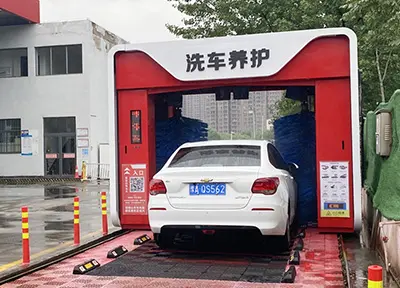
Why Gas Stations Need Automatic Car Wash Machines? The Growing Demand for Gas Station Car Wash Services In today’s competitive fuel market, gas stations are no longer just places to fill up your tank. They are becoming convenience hubs that offer value-added services, and automatic car washes are leading this transformation. The demand for 24/7 unmanned car washes is rising rapidly. Statistics show that gas stations with automatic car wash systems attract 30% or more fuel customers compared to those without. Moreover, integrating a car wash can significantly boost profitability. On average, stations that install automatic wash machines see a 15% to 20% increase in overall revenue. This makes car wash systems not only a customer magnet but also a smart business investment. Advantages of Installing Automatic Car Wash Machines at Gas Stations Installing an automated car wash machine brings multiple benefits, especially when space and staff resources are limited. 24/7 Operation Modern car wash systems operate around the clock and support multiple payment methods, such as QR codes and credit cards. This convenience allows drivers to wash their cars anytime, including after fueling up—without needing extra staff. Low Labor Cost Automatic car wash machines are designed to function with minimal...
View More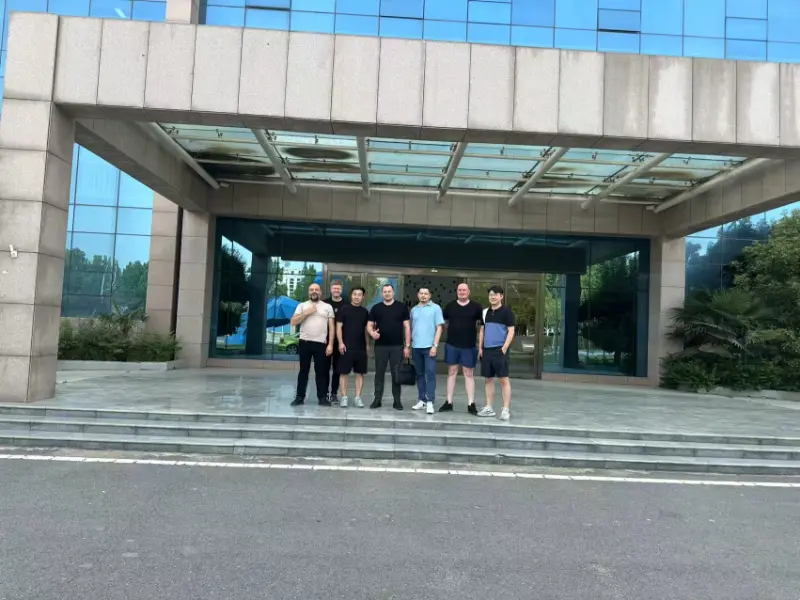
Zhengzhou, China – A delegation from a leading Russian car wash equipment agency recently visited Shinewash’s headquarters to tour its advanced manufacturing facility and observe the operation of self-operated automatic car wash stations. The visit highlighted Shinewash’s capabilities in producing reliable, PLC-controlled systems designed for tough environments, including harsh winter conditions. Factory Tour: Scalable Production and Reliable Engineering During the factory tour, the Russian representatives observed Shinewash’s large-scale production capacity of over 150 units per month, covering a wide product range including tunnel car wash machines, rollover car wash systems, and touchless car wash equipments. All units are built with hot-dip galvanized steel frames, ensuring strength and long-term resistance to rust and wear—an important feature for colder climates like Russia. Field Visit: Unmanned Stations Operating 24 Hours The delegation also visited several Shinewash self-operated car wash stations installed at gas stations and parking lots across China. These 24-hour unmanned stations showcased real-world performance, demonstrating the systems’ stability, high throughput, and minimal maintenance needs. The visit confirmed Shinewash’s ability to deliver fully automatic car wash solutions that perform reliably in all weather conditions. Focus on Cold Climate Technology Shinewash introduced several technical features that cater specifically to the Russian market, including Schneider...
View More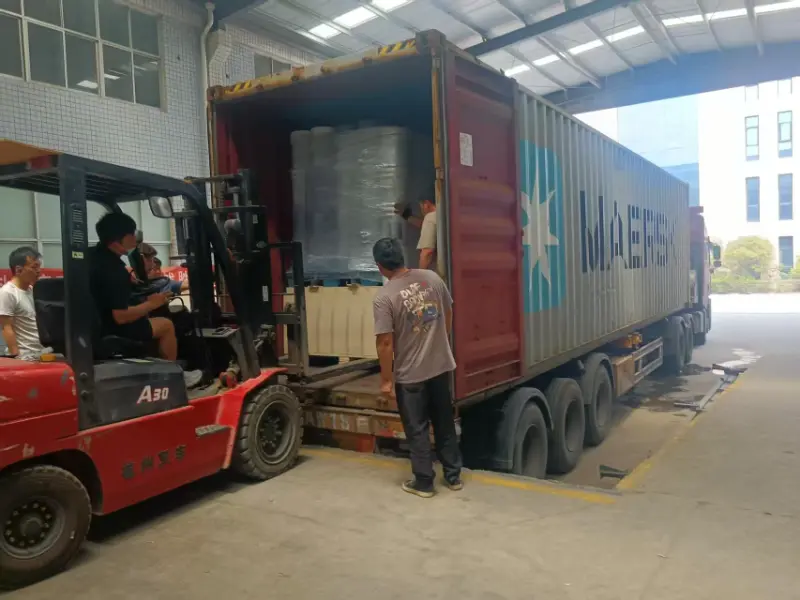
K9 Touchless Car Wash Machine & Self-Service Units Delivered to Romania – 24/7 Smart Eco-Wash for Balkan Drivers Zhengzhou, China – 20/5/2025 – Zhengzhou Shinewash Technology has delivered its K9 Touchless Car Wash Machine and Self-Service Washing Units to a customer in Romania. These advanced, automated car wash systems bring modern and eco-friendly car washing to cities like Bucharest, Cluj-Napoca, and beyond. Designed for busy urban locations, the K9 touchless car wash system helps save water, reduce labor, and protect vehicles — all while operating 24/7. With features like Intelligent Anti-Collision, dual 5.5KW dryers, and efficient water usage (90–140 liters per car), the K9 model is a strong solution for Romanian car wash operators looking to grow their business with smart technology. Why Romanian Operators Choose the K9 Touchless Car Wash 1. Water Recycling Technology The K9 contactless car wash system is built to reduce water use by up to 45% compared to manual washing. This is important for Romanian businesses that must follow EU water regulations and face seasonal water shortages. With a working pressure of 100–120KG, the K9 model provides a deep clean using only 90–140 liters per vehicle. This makes the system both eco-friendly and cost-effective, helping operators...
View More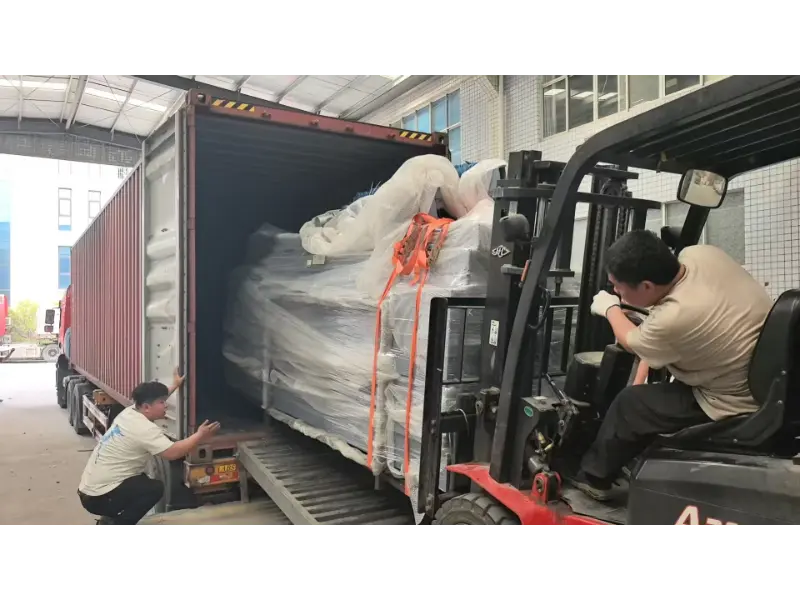
Q11 11-Brush Tunnel Car Wash System Delivered to Tanzanian Customer: Safe, Efficient & Water-Saving Zhengzhou, China – 2025/5/19 – Zhengzhou Shinewash Technology Co., Ltd. has successfully shipped its advanced Q11 11-Brush Tunnel Car Wash System to a customer in Tanzania. Known for its high efficiency, low water consumption, and automated performance, the Q11 tunnel car wash machine is designed specifically for regions like Africa where dust, water scarcity, and labor costs present unique challenges. This delivery marks another milestone in Shinewash’s growing presence in African markets, following the successful installation of Q-series machines in countries like Rwanda and Liberia. With up to 80% water savings and the ability to clean 300–500 vehicles per day, the Q11 Tunnel Car Wash Solution is rapidly becoming the preferred choice for professional car wash operators across the continent. Why Tanzanian Customers Choose the Q11 Tunnel Car Washing System 1. Designed for Africa’s Climate and Conditions ✓ Paint-Friendly EVA Foam Brushes One of the standout features of the Q11 system is its use of 11 EVA foam brushes. These soft, flexible brushes are engineered to clean effectively without damaging vehicle paint — a critical factor in dust-prone regions like Tanzania, where sand and fine particles can easily cause...
View More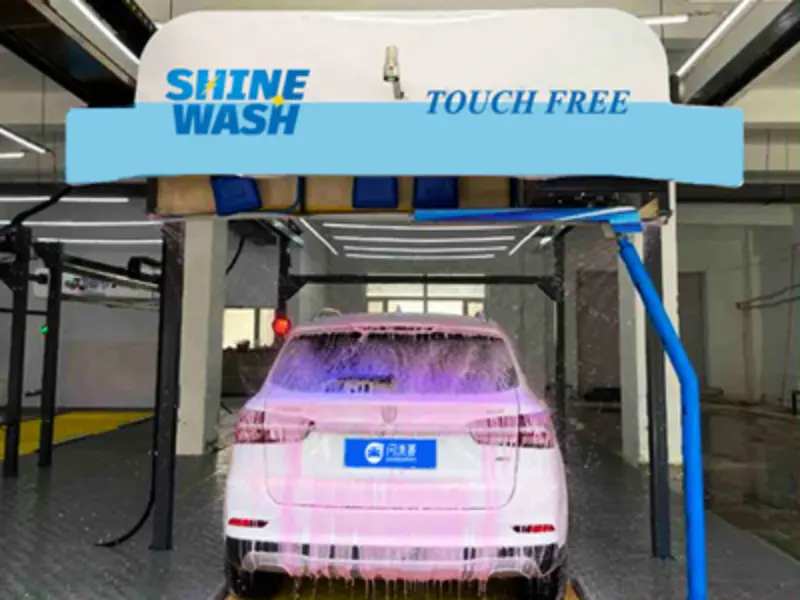
Introduction: Why Upgrade Your Car Wash Shop? The car wash industry is undergoing a massive transformation. Changing customer preferences, rising labor costs, and increasing environmental regulations are pushing shop owners to modernize their operations. Consumers today demand fast, eco-conscious, and contactless services. If your business isn’t adapting, you risk losing out to competitors who are already upgrading. Upgrading your car wash shop doesn’t have to be overwhelming. With the right strategy, you can significantly improve service speed, customer satisfaction, and operating efficiency. Many car wash operators who invest in automation, water-saving technologies, and digital tools report a 25–40% boost in profit margins and significantly lower overhead costs. Whether you’re running a self-service bay, an in-bay automatic car wash, or a tunnel car wash system, the tips below will help you increase profitability and stay ahead of the competition. Technology Upgrades: Automation and Efficiency 1. Invest in Modern Car Wash Equipment One of the most impactful ways to upgrade is by replacing outdated equipment with modern automated car wash systems. Equipment designed 10 or 15 years ago cannot match the speed, precision, or efficiency of today’s machines. Touchless Car Wash Systems Contactless car wash systems are becoming increasingly popular among customers who...
View More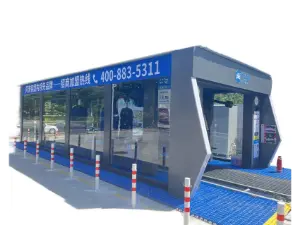
The automatic car wash industry in the United States is thriving. Driven by increasing vehicle ownership, urban convenience, and the growing need for eco-friendly business models, automated car wash systems have become essential for car wash operators. With labor costs rising and consumers expecting faster, touch-free service, investing in the right car wash machine matters more than ever. Shinewash, a leading Chinese manufacturer of automatic car wash systems, offers high-performance, cost-effective solutions tailored for the U.S. market. Their systems deliver up to 40% lower upfront costs than many European brands—without compromising on quality or features. In this 2025 guide, we break down Shinewash’s three flagship systems (Touchless, Rollover, and Tunnel), compare pricing, and help you forecast ROI for your location and business type. Factors Influencing Automatic Car Wash Machine Prices in the USA 1. Technology & Features Advanced features like AI diagnostics, water recycling systems, and remote monitoring raise the initial cost but can significantly reduce long-term expenses. For example, Shinewash’s touchless car wash systems ($15K–$20K) offer 99% scratch-free results and cut labor needs by 40%, ideal for luxury vehicles and EVs. 2. Size & Capacity The larger the system, the higher the cost. Tunnel car wash systems, designed for express locations...
View More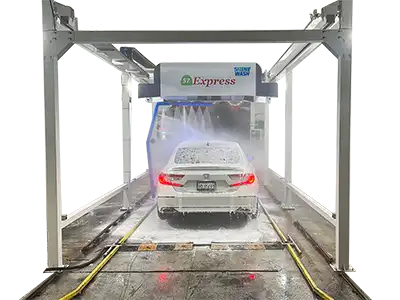
In recent years, the car wash industry has undergone a major transformation thanks to touchless technology. As more vehicle owners prioritize convenience, paint protection, and environmental responsibility, touchless car wash systems have emerged as the go-to solution. Unlike traditional brush car wash, touchless car washes use high-pressure water jets, eco friendly detergents, and advanced sensors to clean vehicles without any physical contact. This not only protects a vehicle’s exterior but also increases efficiency and reduces operating costs. At the forefront of this revolution is Shinewash, a leading supplier of smart, automated touchless car wash machines tailored for businesses that want to offer high-quality, scalable, and eco-conscious services. What Is Touchless Car Wash Technology? A touchless car wash, also known as a brushless or contactless car wash, eliminates the need for cloths, brushes, or other abrasive materials. Instead, it relies entirely on: High-pressure water nozzles to dislodge dirt and debris Eco-friendly cleaning chemicals to break down grime Advanced sensors to scan the vehicle and direct the water jets with precision This process ensures a uniform clean across all surfaces, from wheels to mirrors, without the risk of scratching the vehicle’s paint or damaging delicate exterior features. How It Works: A Closer Look The process starts...
View More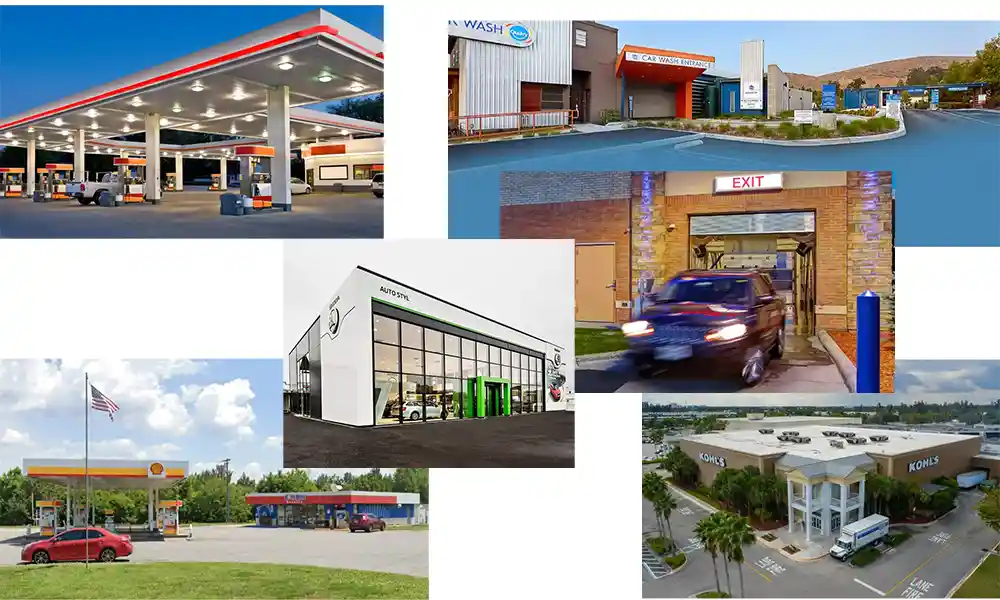
Choosing the right location is the foundation of a successful car wash business. A great location can boost daily traffic, increase customer retention, and maximize return on investment (ROI). On the other hand, a poor site choice can limit visibility, reduce revenue, and hinder long-term growth. This article explores the key criteria to consider when selecting a car wash location, backed by data and real-world insights. We’ll also highlight the top 5 most profitable locations, common pitfalls to avoid, and an example of a location that led to strong customer turnout. Key Criteria for Choosing a Car Wash Location High Traffic & Visibility Locations with a high volume of passing vehicles are critical. Areas with 500+ daily cars—such as highway exits, intersections, and gas stations—offer consistent visibility and footfall. Visibility from the main road ensures that spontaneous visits become more likely. Proximity to Complementary Businesses A car wash near gas stations, shopping malls, or office parks can benefit from existing traffic. According to commercial real estate studies, locations near complementary services can increase customer flow by 30–40%. For example, drivers refueling or shopping are more likely to opt for a quick wash during their visit. Accessibility and Space Convenient entry and...
View More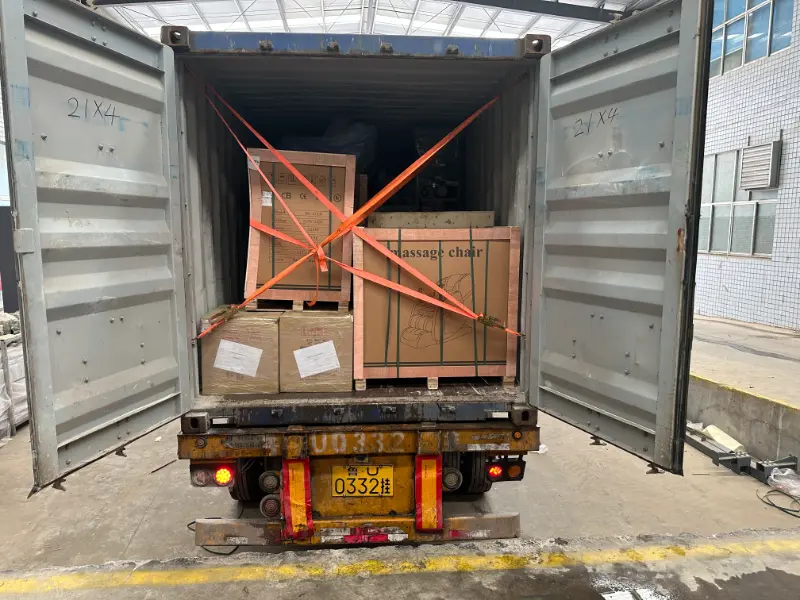
Shinewash is excited to announce the successful delivery of our state-of-the-art S9 Rollover Car Wash System to our strategic partners in Albania. This marks a pivotal moment in the country’s car wash industry, as Shinewash continues to expand its footprint in global markets. With a focus on high-efficiency, eco-friendly operations, the S9 Rollover Car Wash is poised to revolutionize car care services across Albania. Why the Shinewash S9 Rollover Car Wash is Ideal for Albania Our S9 Rollover Car Wash Machine is specially designed to meet the unique needs of Albania’s diverse climate and high-traffic areas, offering the following key advantages: Albania-Optimized Design: Daily Capacity: Processes up to 150-200 vehicles per day, making it an ideal solution for high-traffic regions. Model S9 Machine Size (m) L3.41*W3.7*H3 Max. Car Size (m) L6*W2.1*H2.1 Standard Installation Size (m) L11*W3.7*H3.1 Suitable Cars Car / Jeep / minivan with less than 7 seats Wash Time 2.5-5min/Car Water Consumption 60-80L/Car Shampoo & Water Wax Consumption 10-30ML/Car Electricity Consumption 0.6KWH/Car Power Supply 380V 50HZ 20KVA Power 25KW Top Brush 1 Big Vertical Brush 2 Side Brush 2 Water Recycling: Features 98% water recycling, reducing operational costs and making it highly eco-friendly, a key consideration in today’s green-conscious market....
View More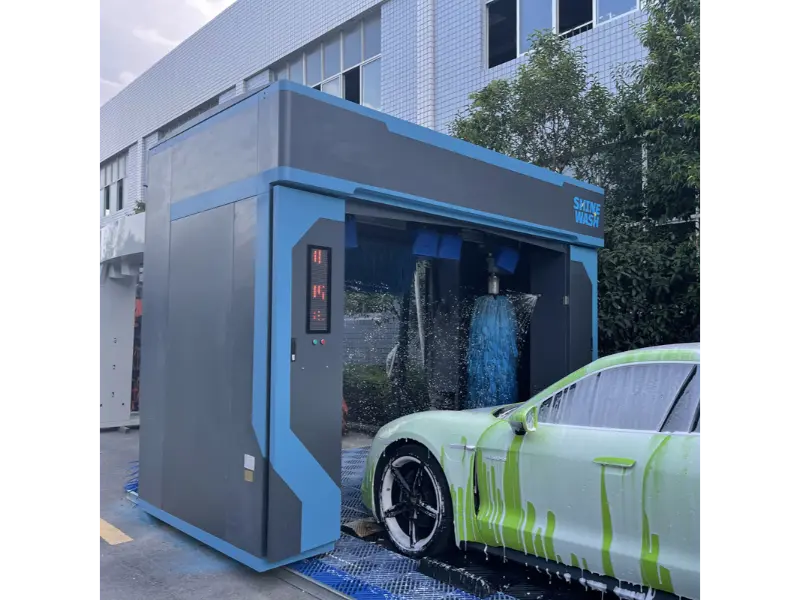
1. Introduction Georgia’s car wash industry is on a steady rise, fueled by growing urbanization, increasing car ownership, and changing customer preferences. As the Peach State continues to attract investment in infrastructure and services, the demand for automated car washes is accelerating. In 2023 alone, Georgia saw a 14% increase in the number of new car wash machines, especially in urban and suburban areas like Atlanta, Savannah, and Augusta. Business owners are increasingly moving away from manual setups to more efficient and scalable solutions. This guide offers a complete breakdown of car automatic washing machine prices in Georgia, covering the types of machines, pricing brackets, brand comparisons, hidden costs, and how to calculate your return on investment (ROI). 2. Key Factors Affecting Car Automatic Washing Machine Prices Machine Type The first and most influential pricing factor is the type of car wash machine you choose. Georgia businesses commonly choose from: Touchless Car Washes – These use high-pressure water jets and advanced car wash chemicals to clean vehicles without brushes. They are ideal for avoiding paint scratches and appeal to luxury car owners. However, they may require more water pressure and chemical usage. Soft Touch Car Washes – Found in most...
View More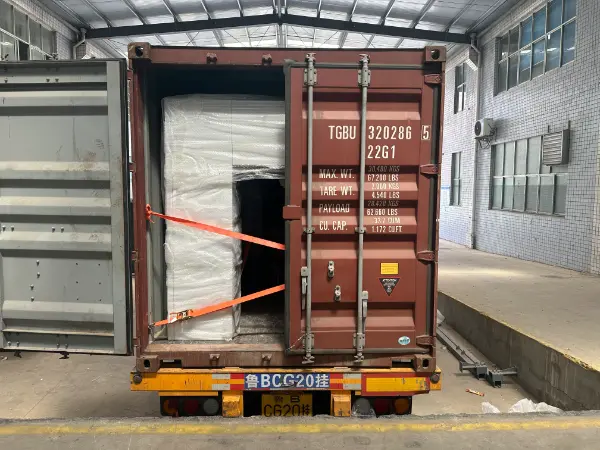
SHINEWASH, a global supplier in automatic car wash technology, has proudly announced the successful shipment of its S1 Soft Touch Car Wash Machine to Sri Lanka. This shipment marks another important step in SHINEWASH’s mission to deliver high-performance, reliable, and eco-friendly car wash solutions to businesses around the world. Introduction of the S1 Soft Touch Car Wash Machine The S1 Soft Touch Car Wash Machine is designed to provide superior cleaning results while being gentle on vehicle surfaces. It combines advanced technology with user-friendly features, making it ideal for both new and established car wash businesses. As the demand for convenient and efficient vehicle care increases in Sri Lanka, the S1 model stands out as a smart investment for forward-thinking operators. Key Features of the S1 Soft Touch Car Wash Machine Five Soft EVA Brushes: The S1 model is equipped with five specially designed soft brushes made of durable nylon. These brushes gently clean without damaging the paint, offering a smooth and safe car wash experience. Fully Automatic Operation: This S1 Soft Touch Car Wash Machine is 100% automated, reducing the need for manual labor and enabling 24/7 operation. It’s perfect for busy locations and unattended car wash stations. Fast Washing Cycles:...
View More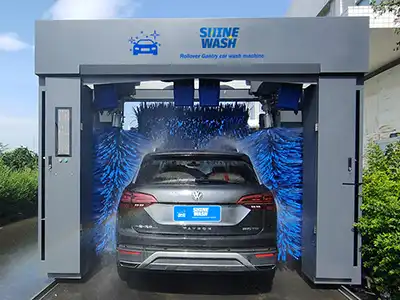
In today’s fast-paced automotive world, car wash businesses must do more than simply clean vehicles—they must offer speed, sustainability, and cutting-edge technology. That’s exactly what Shinewash delivers. As a global leader in automatic car wash systems, Shinewash has built a reputation for excellence by providing advanced, eco-friendly solutions backed by reliable service and strong international partnerships. With more than 3,000 installations in over 20 countries—including the UAE, Malaysia, the Philippines, and Australia—Shinewash is transforming the way the world thinks about car washing. An Introduction to Shinewash Founded in Zhengzhou, China, Shinewash has grown from a local manufacturer into a globally recognized provider of automatic car wash machines, including tunnel car wash equipments, rollover car wash machines, and touchless car wash systems. Our engineering teams focus on designing machines that balance performance with energy efficiency, allowing operators to deliver exceptional results while reducing environmental impact. What sets Shinewash apart is our relentless pursuit of quality. Every system is built using advanced manufacturing processes, tested to meet international standards, and supported by a comprehensive customer care system. Whether you’re a single-location operator or a large-scale franchise, Shinewash automated car wash machines are built to scale with your growth and adapt to the specific...
View More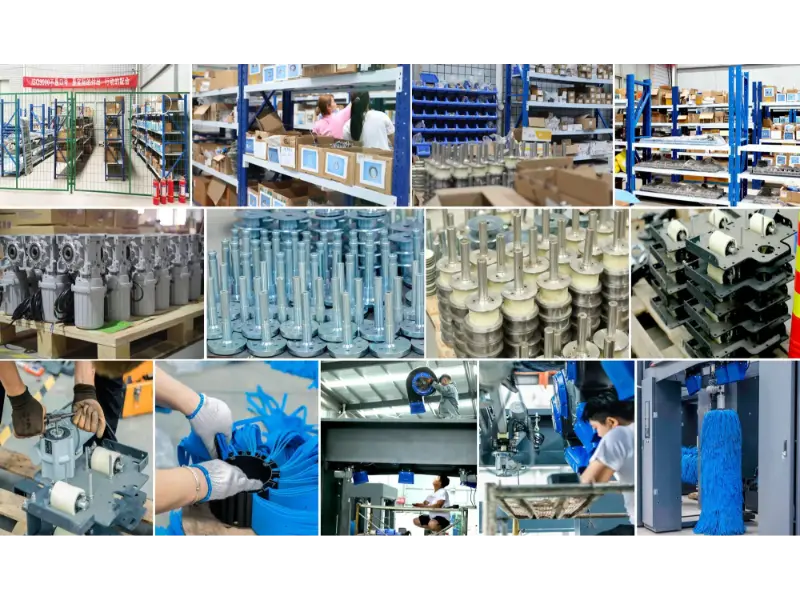
The modern car automatic washing industry demands engineering excellence across more than 30 critical subsystems. Through ISO-certified manufacturing and global component sourcing, SHINEWASH establishes new benchmarks in operational efficiency and equipment longevity. This analysis dissects seven key systems powering professional car wash installations worldwide. Structural Foundation Systems Hot-Dip Galvanized Framework The foundation of any industrial-grade car automatic washing system is its structural integrity. SHINEWASH employs a 4-5mm thick marine-grade steel frame that undergoes ASTM A123 hot-dip galvanization at 449°C, creating 3.8-4.2 mil zinc coatings. This ensures unmatched corrosion resistance and durability in high-humidity and coastal environments. The hot-dip galvanization process extends the frame’s longevity to over 15 years, compared to ordinary 2-3mm steel frames that may rust within six months. Rigorous salt spray tests confirm compliance with ASTM B117 standards, exceeding 2,500 hours of protection. Additionally, the structure offers 76% higher torsional rigidity than conventional designs and seamlessly integrates with expansion anchors for enhanced stability. Modular Mortise-Tenon Architecture SHINEWASH employs an innovative CNC-machined interlocking joint system that enhances both maintenance efficiency and structural strength. This modular approach allows rapid component replacement, reducing downtime by up to 70% compared to traditional bolt-on frames. The precision-engineered components ensure a structural deflection limit...
View More